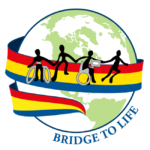AAC technologies and interventions to support literacy learning for individuals with complex communication needs
Dr. Janice Light
Literacy skills are critical for individuals who have complex communication needs and require . These skills provide a channel for educational assessment and learning, enhance vocational opportunities, promote more effective communication, and facilitate independent living and participation. Unfortunately many individuals who have complex communication needs do not receive the supports that they require for literacy learning. This session will present evidence-based technologies and interventions to support literacy learning by individuals with complex communication needs. The session will describe technologies and instruction designed to support the development of phonological awareness, letter sound correspondences, decoding, encoding, sight word recognition, reading comprehension, and writing activities. Research results will be presented and case examples will be used to illustrate the effects of the technologies and instruction on the acquisition of literacy skills as well as positive collateral effects on language development and speech production.


